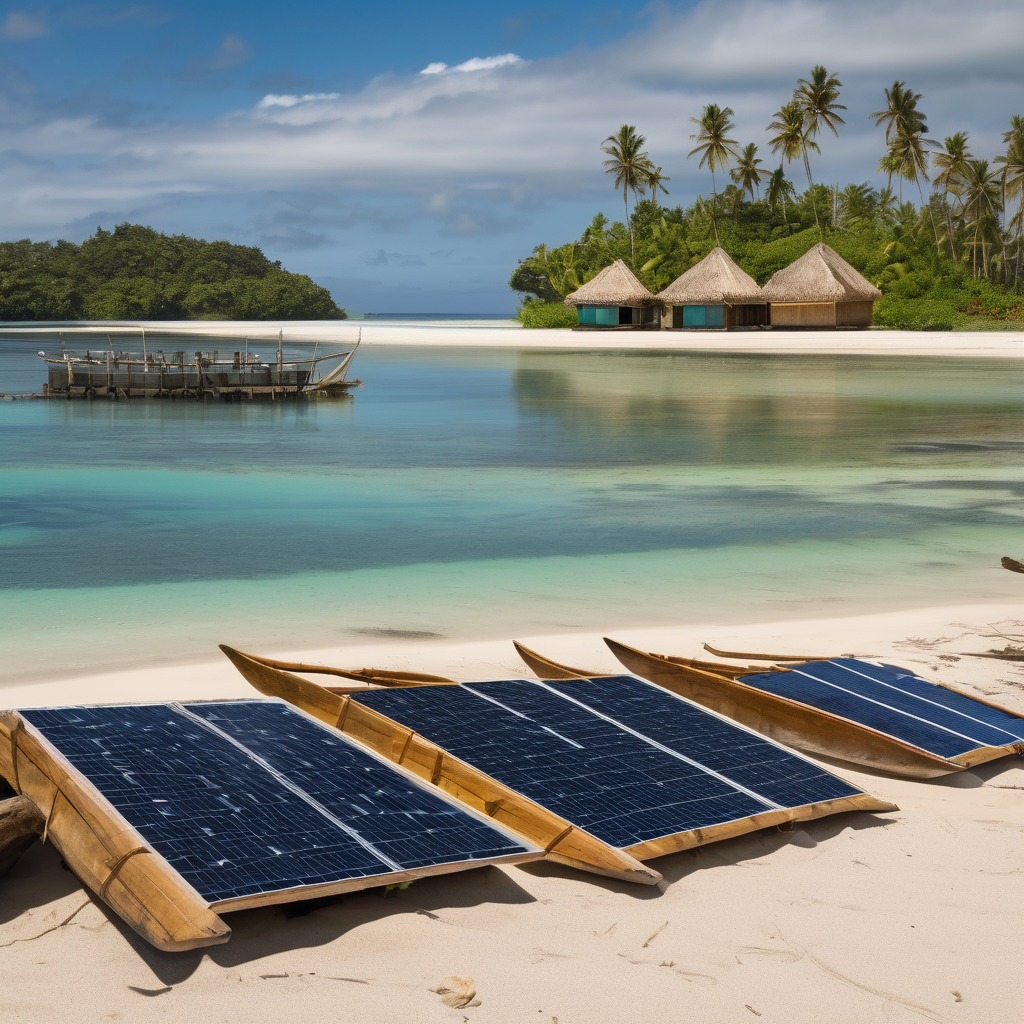Kiribati has made a significant impact at COP30 by emphasizing the importance of building resilient development pathways for its outer island communities, despite their small and low-lying nature. This commitment was evident during the side event on November 12 at the Moana Blue Pacific Pavilion, where the Kiribati Outer Island Resilience and Adaptation Project (KOIRAP) was highlighted. The initiative aims to secure food and water supply while creating sustainable strategies to confront the challenges posed by climate change.
Vice President and Minister of Finance and Economic Development, Teuea Toatu, addressed the critical climate challenges facing Kiribati, describing it as a representation of Small Island Developing States (SIDS) that are directly affected by the climate crisis. Toatu stated, “As a microcosm of the Small Island Developing States on the frontlines of the climate crisis, Kiribati faces challenges that are real, escalating, and profound. Our plea, alongside all SIDS, is to keep 1.5 alive, as this is the only path to secure our future.”
The outer islands of Kiribati cover a land area roughly equivalent to that of the United States, yet the travel between these islands often takes days due to limited transport options. This geographical isolation, coupled with scarce resources, heightens the vulnerabilities of these communities, which are grappling with severe issues such as rising storm surges, coastal erosion, and prolonged droughts that threaten their livelihoods.
To ensure resilience, Toatu outlined the government’s commitment to a development path that leaves no community behind. The KOIRAP initiative focuses on immediate needs through infrastructure improvements, enhanced water supply, and the adoption of climate-resilient practices. It includes vital measures such as distributing water tanks and hand pumps to households, critical for adapting to an evolving climate.
Takena Redfern, Director of the Kiribati National Disaster Management Office, reinforced the significance of community involvement in these efforts. “In Kiribati, communities are not just recipients; they are builders of their own resilience,” he stated.
KOIRAP is part of the broader national strategic frameworks and is aligned with the Kiribati 20-year Vision 2016-2036, illustrating the government’s long-term dedication to sustainable development in light of climate-related challenges.
Kiribati’s proactive stance is not isolated; similar initiatives are underway across the Pacific region, where countries are increasingly focused on collaborative efforts and regional strategies that promote grassroots resilience. This collective commitment among Pacific nations underscores the importance of collaboration and local innovation as essential ingredients for adaptation and survival in the face of climate change. The initiatives driven by Kiribati present a hopeful example, demonstrating that concerted efforts can lead to a more sustainable future for vulnerable communities.
